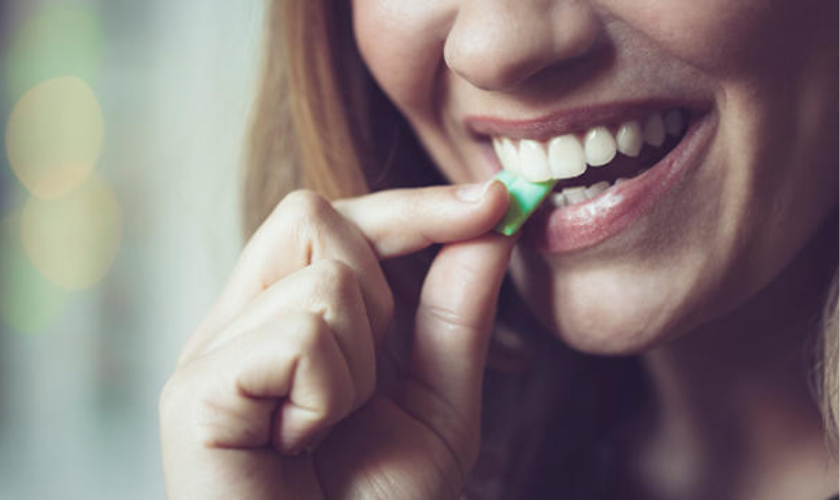
Is Chewing Gum Good For Oral Health
Chewing gum. It’s a familiar pastime, a breath freshener, and sometimes even a focus booster. But when it comes to oral health, is chewing gum a helpful habit or a sugary villain? Like most things in life, the answer is a little more complex.
In this blog, we’ll delve into the world of chewing gum and its impact on your oral health. We’ll explore the benefits of sugar-free gum, the drawbacks of sugary varieties, and how to incorporate gum chewing into a healthy oral care routine.
The Power of Saliva: Chewing Gum’s Secret Weapon
Our mouths are teeming with bacteria, both good and bad. The good ones help break down food, while the bad ones can contribute to cavities and gum disease. Saliva, our natural defense system, plays a crucial role in maintaining a healthy balance. It washes away food particles, neutralizes acids produced by bacteria, and even contains minerals that can strengthen tooth enamel.
This is where chewing gum comes in. Chewing, regardless of the gum itself, stimulates saliva production. Increased saliva flow can:
Wash away food debris:
Chewing action helps dislodge stuck food particles that could harbor bacteria.
Neutralize plaque acids:
Plaque, the sticky film on teeth, produces acids that erode enamel. Saliva helps neutralize these acids, protecting your teeth.
Remineralize teeth:
Saliva contains minerals like calcium and phosphate, which can help strengthen weakened tooth enamel and potentially reverse early cavity formation.
Chewing for a Smile: The Advantages of Sugar-Free Gum
Now, let’s talk about the type of gum that truly benefits your oral health: sugar-free gum. When you choose sugar-free varieties with the American Dental Association (ADA) seal, you get the saliva-boosting benefits without the cavity-causing drawbacks. Here’s how sugar-free gum can contribute to a healthy smile:
Reduced cavity risk:
Sugar feeds the bad bacteria in your mouth, leading to acid production and cavities. Sugar-free gum eliminates this risk.
Fresher breath:
Chewing gum can help freshen breath by stimulating saliva flow and removing food particles that contribute to bad breath.
Increased alertness:
Some studies suggest chewing gum may improve alertness and focus.
Here are some additional pointers for maximizing the oral health benefits of sugar-free gum:
Chew for 20 minutes:
Aim for 20 minutes of chewing after a meal or snack to maximize saliva production and plaque removal.
Look for xylitol:
Xylitol is a sugar alcohol that has been shown to have additional benefits for oral health by reducing harmful bacteria.
Don’t replace brushing and flossing:
Chewing gum is a great addition to your oral care routine, but it shouldn’t replace twice-daily brushing and daily flossing.
The Sticky Side of Chewing Gum: When to Say No
While sugar-free gum offers some advantages, it’s important to be mindful of potential drawbacks:
Excessive chewing:
Overdoing it with gum chewing can strain your jaw muscles and lead to discomfort.
Artificial sweeteners:
Some sugar-free gums contain artificial sweeteners. While generally safe, some people may prefer to avoid them.
Sugar-laden varieties:
Regular gum loaded with sugar can significantly increase your cavity risk. Make sure to read the labels and select options without added sugar.
Consulting a Dentist for Personalized Advice
Everyone’s oral health needs are unique. If you have concerns about chewing gum or any aspect of your oral health, consulting with a dentist is always recommended. A dentist in McKinney, TX, can assess your situation and provide personalized guidance on incorporating chewing gum or other strategies into your oral care routine.
Chewing Your Way to a Healthy Smile
Chewing gum, particularly sugar-free varieties, can be a helpful tool for promoting oral health. By stimulating saliva production, it can help wash away food particles, neutralize plaque acids, and potentially strengthen tooth enamel. Remember, moderation is key. Don’t overindulge, and prioritize brushing and flossing for optimal oral hygiene.
Chewing gum can be a friend to your oral health, but it’s not a magic bullet. By making informed choices, incorporating sugar-free gum strategically, and maintaining a consistent oral care routine, you can keep your smile healthy and bright.
